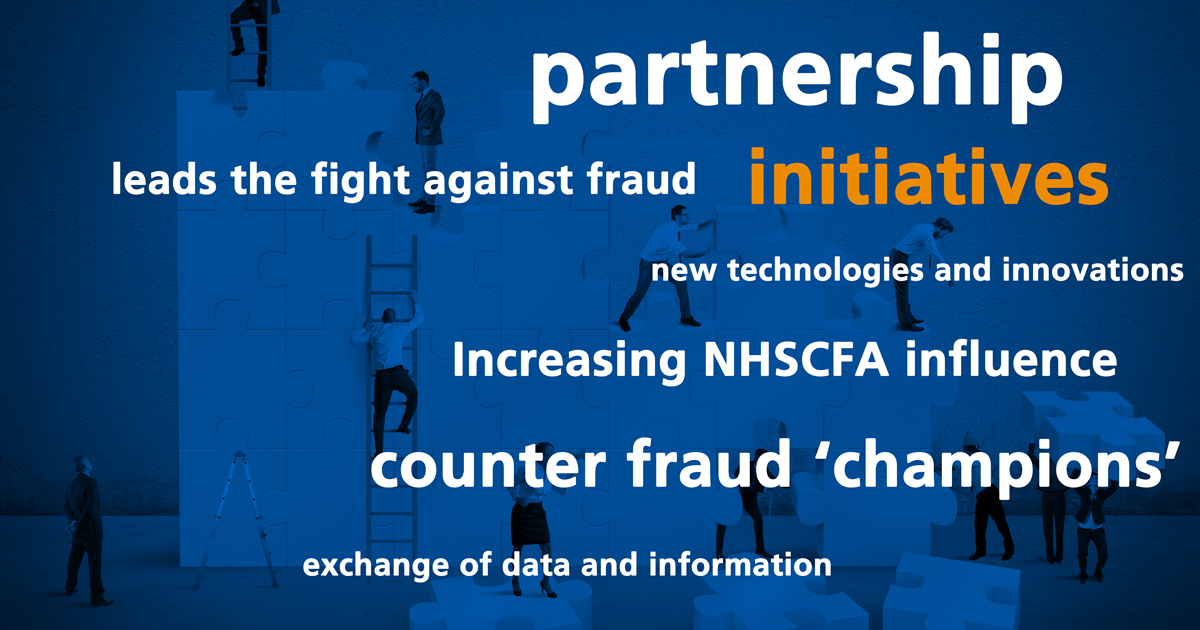The loss to the NHS from fraud, bribery and corruption is estimated to be £1.27 billion each year – enough money to pay for over 40,000 staff nurses. Fraud takes vital taxpayer funds from frontline NHS services and diverts it to the pockets of fraudsters.
Our first annual report offers a detailed look at the full range of our work by describing what we achieved and how we used our resources from our launch on 1 November 2017 to 31 March this year.
One example of how the NHSCFA leads the fight against fraud, bribery and corruption in the NHS and wider health group is through the guidance we produce. We have recently identified through our intelligence work that the risks to the NHS from mandate fraud have increased. We are aware that organised crime groups are actively targeting the NHS. The methods they use are constantly evolving and becoming more sophisticated. Mandate fraud happens when a fraudster tricks an organisation into making a payment to them by pretending to be one of the organisation’s regular suppliers (e.g. they may ask the organisation to change a standing order so payments go to the fraudster’s bank account). Losses from this type of fraud can run into hundreds of thousands of pounds for organisations affected – the NHSCFA provides preventative advice and a case study in chapter 4 of our updated invoice fraud guidance, and we regularly share information and intelligence with the NHS on this and other fraud threats. Even the most sophisticated attack can usually be negated by some fairly simple precautions.
There is a renewed drive to tackle fraud in the NHS, and you may be aware of the Secretary of State for Health and Social Care’s announcement on this issue earlier this month. In partnership with the DHSC, we are working on a number of initiatives to underpin the delivery of the DHSC Counter Fraud Strategic Plan. This includes:
- Increasing NHSCFA influence and counter fraud compliance across the NHS with closer working and engagement with bodies such as NHS Improvement, including the appointment of counter fraud ‘champions’ across the NHS at a local level to drive up performance.
- Greater and more effective engagement of NHS audit and risk committees to hold health bodies to account and to provide more effective support from the NHSCFA at the centre.
- Greater exchange of data and information to counter fraud across the NHS, increasing our use of new technologies and innovations where possible.
- Exploring the development of a framework contract for counter fraud services that ensures that all counter fraud work is conducted consistently and to the highest possible standards.
These initiatives can help make the NHS better equipped to deal with the threat from fraud, by bringing a stronger focus on counter fraud work at both a national and a local level: to make the most of this opportunity it’s important that all risk owners in the NHS contribute to developing the initiatives that affect them. We have written to key stakeholders, including Directors of Finance/Chief Finance Officers, Local Counter Fraud Specialists and Audit Committee Chairs, to seek their input and support for this work.
Partnership work is vital to tackling fraud, and this is not limited to the NHS and wider health group. This month saw the launch of the Government Counter Fraud Profession (GCFP), which is designed to create a new community of counter fraud professionals across central government and arm’s-length bodies, enhance counter fraud capability and put the UK in a better position to find and fight fraud and economic crime. The NHSCFA has played an important role among a number of organisations involved in the development of the GCFP, and our fraud investigators are among the first members of the new profession.
Please get in touch if you would like to know more about our work, and subscribe to our e-newsletter for the latest updates about the NHSCFA and counter fraud work in the NHS.
